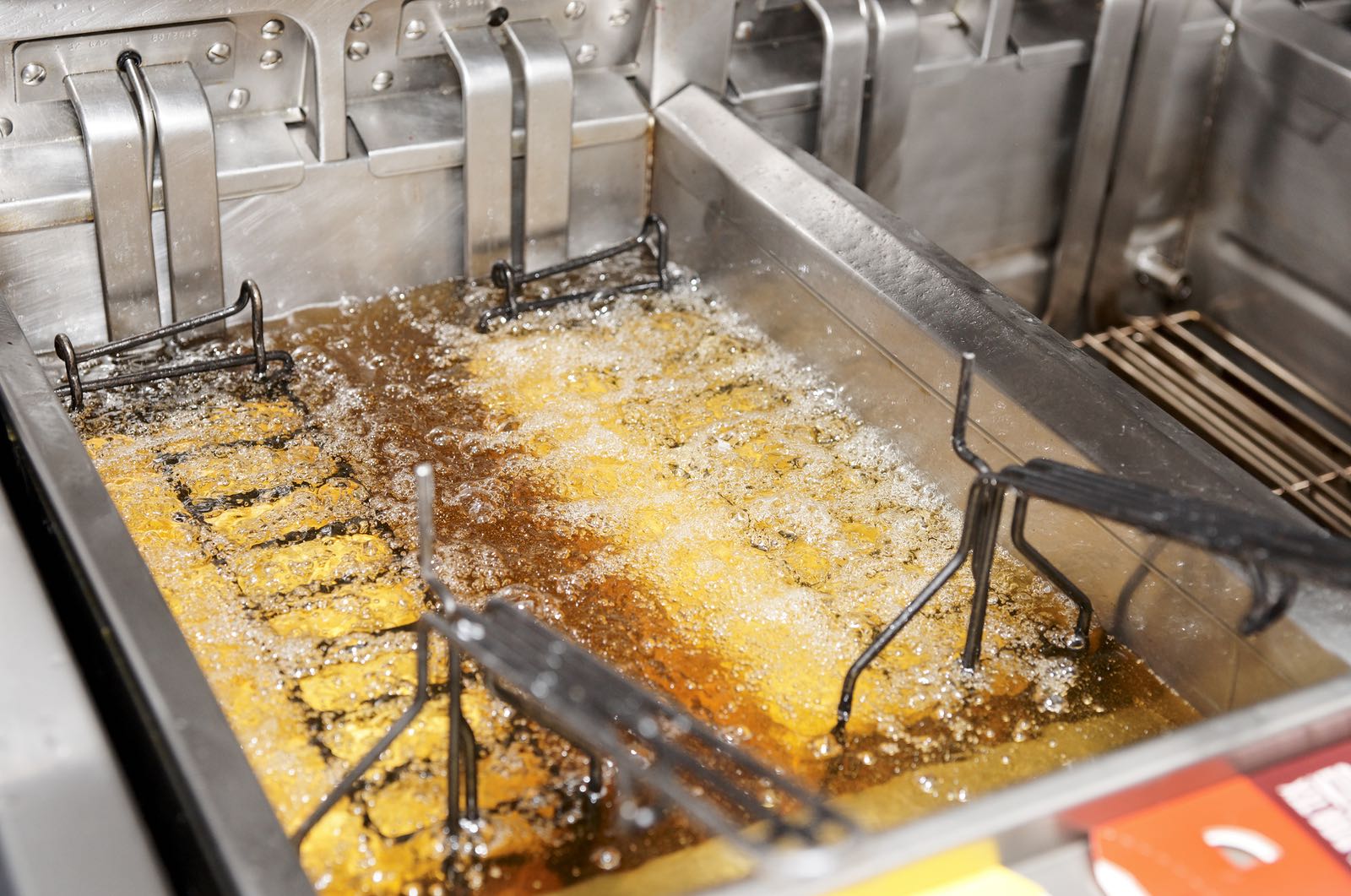A deep fryer, also known as a deep-fat fryer, is essential to any commercial kitchen operation. It allows restaurants to make anything from french fries to pastries or fried chicken in just a matter of minutes.
Because of how frequently it is used, a commercial fryer can get very messy when in operation on a daily basis. Whether you own a large chain restaurant or a neighborhood bar, a dirty fryer can ruin the flavor of food and minimize the equipment’s lifespan.
Hiring a professional cleaning company with certified technicians will ensure your commercial deep fryer is properly cleaned. According to the National Fire Protection Association (NFPA), deep fryers cause 21% of restaurant fires and this is typically attributed to lack of cleaning or proper maintenance. Read below to learn about the steps Halo follows when performing a deep fryer boil out and deep cleaning.
Deep Fryer Boil Out Process
A deep fryer boil out involves thoroughly cleaning and boiling out the deep fryer to clean the inside, baskets and utensils. This means removing old oil, adding water and a commercial degreasing solution, and boiling it inside the fryer to remove stuck-on grease and grime. Regularly performing this process ensures that cross-contamination does not occur and increases the lifespan of the commercial fryer.
This process should be done every few fryer oil changes, or at least once per month. However, high-use fryers may need to be boiled out more frequently, possibly weekly depending on a restaurant’s food operation. We recommend changing the oil when it becomes darker in color, changes consistency or has a bad, unappetizing odor.
The Cleaning Process
- Before beginning, our technicians will cover the flooring and other nearby cooking equipment to prevent grease splatters and spills during cleaning.
- We then turn off the fryer, close the gas supply inlet and turn off the pilot light (if gas). The power source is also unplugged from the wall while the oil inside cools down. This can take a long time to properly cool since most fryers are kept at a constant heat of around 350 degrees Fahrenheit.
- Once it cools down to less than 150 degrees Fahrenheit, the technician drains the oil from the fryer into a spill-resistant stainless-steel container for proper disposal.
- Next, we scoop out food crumbs and particles at the bottom of the fryer and remove the oil and grease buildup from inside the walls, corners and base with a scraper. If scraping is not done properly, the new oil will have an unsavory taste.
- Our technician will use a fryer cleaning rod to clean grease out of the drain line. Any leftover grease remnants can cause mechanical and safety issues with the fryer.
- We then fill the fryer with water and degreasing solution to the level line, which can vary depending on the type of equipment. The technician typically leaves the fryer baskets and utensils inside the deep fryer during boil outs since the cleaning solution will clean off any caked-on grease.
- After that, the heater is turned back on to boil the water and cleaning solution for at least 20-30 minutes, removing any stuck-on grease from the machine. If the fryer is very dirty, this may take longer.
- After the allotted time, the unit is again turned off. This is done to allow the water and solution to cool down completely before disposing of it in a container.
- While cooling, our technicians will set aside the baskets and utensils for additional cleaning. If grease and oil is still present on the basket’s interior and exterior and on utensils, we soak them in warm water and cleaning solution. With a soft-bristle brush, the fryer basket’s base, interior walls and exterior are scrubbed, paying close attention to the spots where oil and food particles gather. The technician will then rinse and repeat (if necessary).
- Next, the baskets and utensils are set aside to thoroughly air dry. Wet items should NEVER be placed into oil.
- Once the fryer is done draining, the technician will wipe down the interior before scrubbing areas where oil, grease and food particles still remain.
- After that, the technician will rinse the interior with a rinsing agent and then again with water to remove the cleaning mixture and remnants. Any leftover water or cleaning solution will leave an odd aftertaste and affect the quality of the next batch of oil.
- We then spray the exterior of the deep fryer and the counter with a degreasing solution, allowing it to sit for a few minutes to remove grease. After that, it is wiped down with a non-abrasive cloth and degreasing cleaning solution.
- The entire fryer is then dried with a lint-free cloth, wiping down the heating element and allowing it to dry completely.
- To finish up, our technician will remove the plastic coverings protecting floors and equipment and wipe down any grease splatters.
- Throughout normal commercial kitchen operations, the area in front of the fryer gets a thin layer of grease which can cause become slick. Our technicians will thoroughly clean around equipment to reduce the risks of slips and fall accidents.
Fryer Maintenance Tips
Aside from boiling out and thoroughly cleaning all surface and fryer baskets or tools, we recommend routinely performing preventative maintenance on commercial deep fryers.
Check for gas leaks monthly by spraying the gas-conducting hoses with a soap-based cleaning solution and looking for bubbles. If bubbles appear, immediately shut off the gas and contact a technician to service the machine. Additionally, if you notice gas puddling near the fryer, repair any hoses or parts where the leaks are originating from immediately.
We also recommend taking steps to reduce the amount of foreign objects like food or water in the oil, which causes taste issues in fried food and reduces oil quality. To reduce the issue of loose particles ending up in the oil, load the fry basket away from the vat when cooking food.
Finally, extend the lifespan of cooking oil by keeping the temperature relatively low and covering the fryer when not in use at night or between busy service times.
Keep Deep Fryer Cleanings Routine
As a commercial kitchen operation, scheduling routine deep fryer cleanings will save you money in the long-term by cutting overall energy consumption. Additionally, it will reduce the long man-hours needed to clean an extremely dirty dryer and reduce the chances of the equipment becoming a fire hazard in your establishment. If you’re in the Dallas-Fort Worth area, contact Halo for a complete commercial kitchen cleaning consultation.




